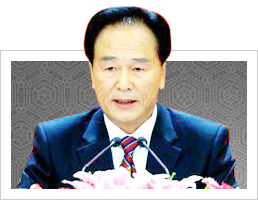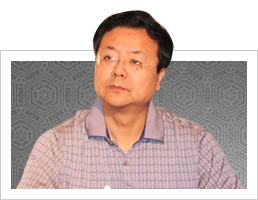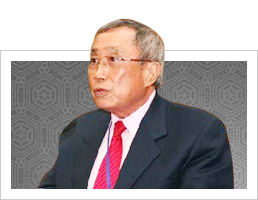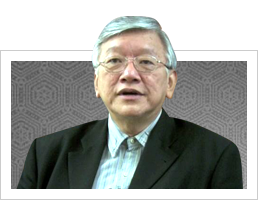World dialogue on the Chinese Dream
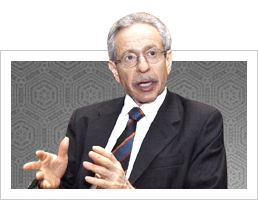
Dr. Robert Lawrence Kuhn, author of How China’s Leaders Think and the biography of former President Jiang Zemin, has long-term relationships with China’s leaders and the Chinese government.
4. Global
The “Global Chinese Dream” can be described with two different kinds of sub-categories: (i) how the world benefits from The Chinese Dream, and (ii) why the world worries about The Chinese Dream.
That the entire world derives material advantages from The Chinese Dream is apparent in a globalized economy. The higher the standard of living of the Chinese people, the greater their domestic consumption, which means that more products are imported, creating jobs and prosperity in a multiplier effect worldwide.
Furthermore, as China advances in science and technology—for example, in the production of electronic and other equipment at low prices—the more the world can share in the benefits of China’s success by getting needed products at affordable prices. (This is especially true for the developing world where critical products, such as smartphones, are price sensitive). (Q: do you mean “expensive” ? If so, why not just say that?)
On the other hand, some foreigners worry that the more The Chinese Dream comes to fruition, the more aggressive, or expansionist, China will become. Notwithstanding the constant assertions by China’s leaders that “No matter how strong China becomes, China will never seek hegemony,” still some foreigners are concerned that at some future date reasons will develop to belie the promises.
Some foreign media deemed it “no coincidence” that when Xi first announced The Chinese Dream, he defined it as “the great revival of the Chinese nation” in a speech at the National Museum in Tiananmen Square—where an exhibition called “Road to Revival” portrayed China’s oppression and humiliation at the hands of foreign powers and presented how it was the CPC that restored China’s sovereignty, integrity, dignity and pride.
Here is how some foreigners think about China’s resurgent development. In his speech “China’s Challenge to American Hegemony,” former US Ambassador Charles W. Freeman, Jr. (who was the chief interpreter during former U.S. President Nixon’s legendary first trip to China in 1972) seeks “to see China as it is, not as we wish or fear it to be” nor as China itself may today sincerely proclaim. He quotes the Chinas defense “white paper:” (Q: I’m not sure what the words in boldface should be, not sure what this means, maybe a word is missing? – “the Chinese defense “white paper:” ?)"China will never seek hegemony or engage in military expansion now or in the future, no matter how developed it becomes." In saying this, Freeman argues, “China is inadvertently echoing the American isolationists of the 19th and early 20th centuries. The United States did not then seek to dominate or control the international state system, nor did it pursue military solutions to problems far from its shores. In time and in reaction to events, however, America came to do both.”
Freeman concludes that, “The more likely prospect is that China will take its place alongside the United States and others at the head of a multilateralized system of global governance. In such an oligarchic world order, China will have great prestige but no monopoly on power comparable to that which the United States has recently enjoyed.”
Li Junru, former vice president of the CPC's Central Party School, said that it is a misunderstanding to worry about China's expansion when the country is seeking rejuvenation. Rather, he said, "We put forward the concept of rejuvenation based on our historical experience that lagging behind leaves one vulnerable to attacks.”
"When we talk about the great rejuvenation of the Chinese nation, some people ask me which period in history China wants to return to,” Li continued.” The Yuan Dynasty (1271-1368) after Genghis Khan's expansion, or the heyday of the Qing Dynasty (1644-1911) before the 1840 Opium War?" Li said. "It is a pure misunderstanding if it is not asked in a malicious way."
China’s good will, no matter how genuine, is not sufficient for many suspicious foreigners, especially those who do not understand China. One never knows, they worry, when the ‘gentle giant’ will have a change of heart. One method for mitigating this problem is for China to show that it is in China’s national interest never to assert hegemony. This can be done by explaining that China’s primary concern is elevating the standard of living of its citizens and that international troubles detract from China’s capacity to achieve this goal.
Connotations of Chinese Dream
Inspired by the Chinese Dream, more and more people have begun to chase their own dreams, including dreams to receive better education, start businesses, purchase homes and get rich. People firmly believe that as long as they work hard, their dreams would come true. [more]
Chinese dream and China's governance
A great deal will depend on how Xi Jinping will actually implement the core features of the program he has laid out and how he will seek to create incentives and constituencies to support his programmatic goals.In sum, President Xi has now made very clear where he stands and where he wants the country to go under his leadership, and he has achieved wide-ranging endorsement of this overall program. [more]
Chinese Dream includes strong PLA
The PLA as a pillar of State security follows the trend of the times and follows a principle that is different from colonial aggression and expansion. And China firmly believes in the principles of peace, cooperation and development of military ties with other countries. [more]
The Chinese dream and peaceful development
The most difficult issue in the region now is the the relationship between China and Japan regarding overlapping claims on the Diaoyu, or Senkaku, islands group. The problem is residual from World War II, and the historical part of the issues is complicated. That is why Japan PM Abe’s revisionist statement on World War II and its impact does not help. [more]
The year of Chinese Dream
Distinct from the American Dream, the Chinese Dream cannot be a narrative of pure newness. It is the imagining of a better future with the memory of 4,000 years of history, a movement of renaissance expressed in the vision of "civilizational China". [more]
Defeat challenges, realize Chinese Dream
High economic growth in recent decades may have made China more confident of realizing the Chinese Dream, but the country's new leaders face serious challenges that could hamper their efforts to realize the goal.First and foremost is the need to fight widespread corruption. Making this his main priority, President Xi warned that corruption could lead to "the collapse of the Party and the downfall of the State". [more]
World dialogue on the Chinese Dream
The “Personal Chinese Dream” focuses on the well-being of individual Chinese citizens and thus modifies traditional notions of the primacy of the collective over the individual. The dream of the Personal is balanced with the dream of the National. In fact, the fulfillment of The Personal Chinese Dream constitutes a good part of what it means to fulfill the National Chinese Dream. [more]
Making a nation's dream come true
Promoting Chinese concepts in the rest of the world is not very difficult - stop translating key Chinese terminologies (at best, give the appropriate or closest meaning and continue with the Chinese terminology). If kung fu, wushu, rujia, shengren, junzi can be understood and accepted by the outside, why not zhongguo meng? Once you translate a Chinese term you give away the definition of thought. [more]

